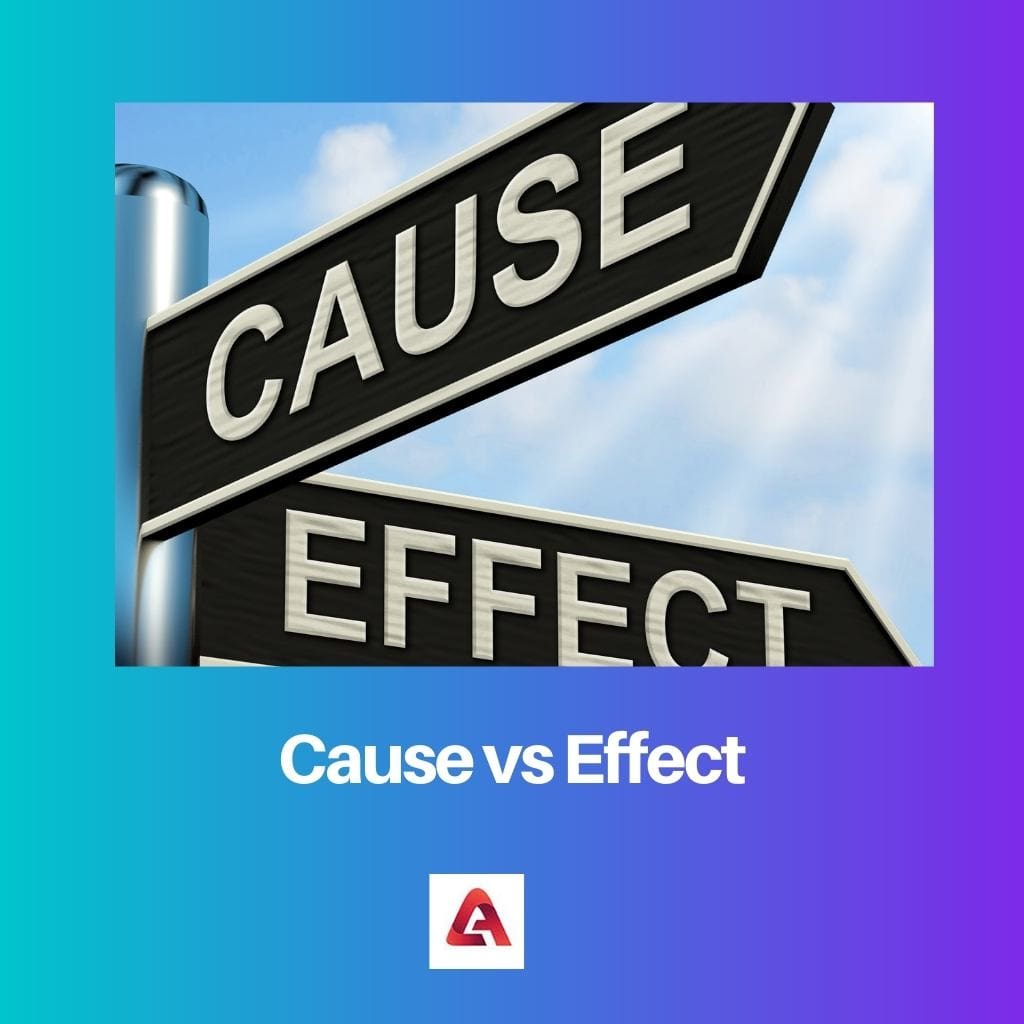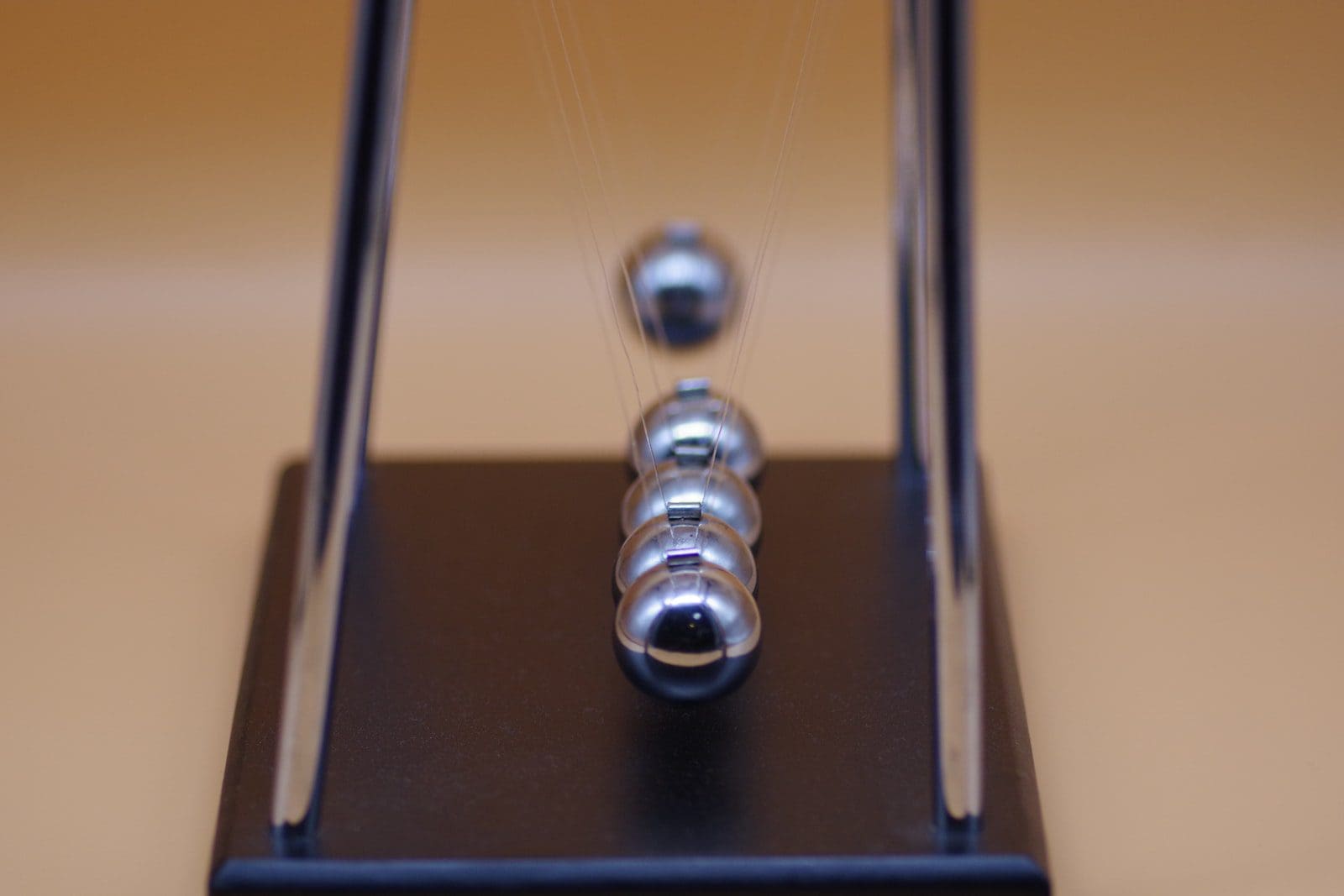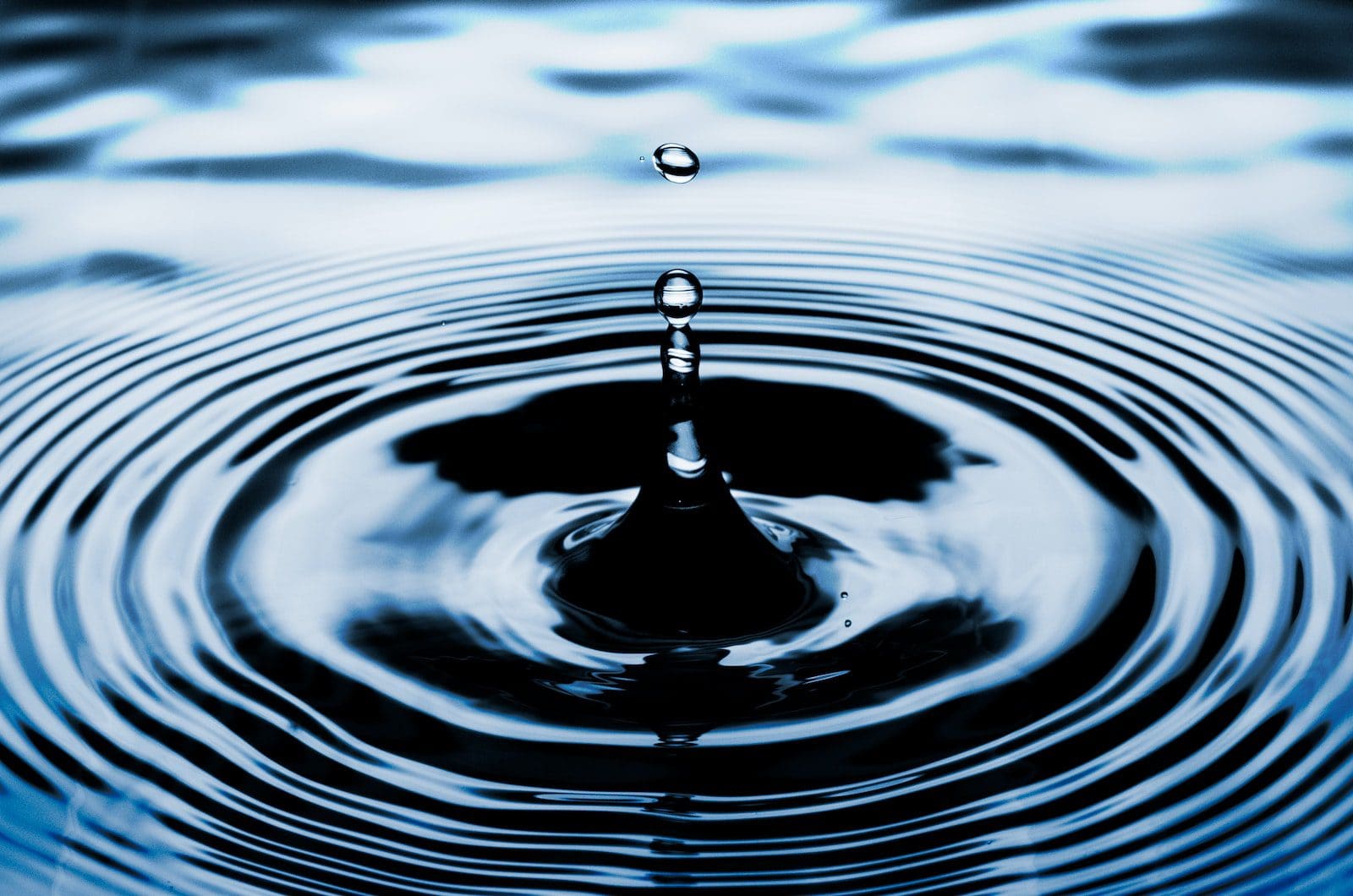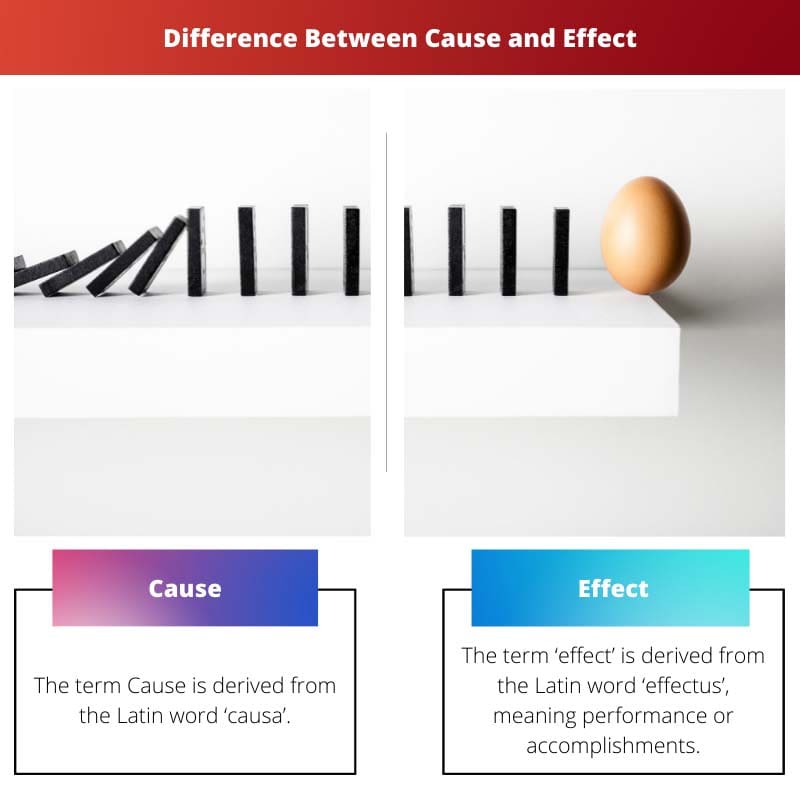For every reaction, there is an equal and opposite reaction. Newton’s third law of motion holds for all events happening around us.
For instance, if water boils to a gaseous state, it is because of the energy provided by heat or by reducing pressure.
Similarly, the momentum generated by the football player is transferred to the ball through the kick, which enables the ball to travel to a certain distance with a specific speed.
Some factors in the above two examples produced the desired effect. Those factors were said to be the cause for the event to take place.
The events resulting from the cause are said to be an effect. Effect and cause are two sides of the same coin. One does not exist without the other.
If something has happened, it will result from some direct or indirect cause. The cause may be known or sometimes remains hidden.
The origin of the cause could be many years back or a fraction of a minute. It depends on the nature of the cause.
So, it should be noted that if we cannot find a cause for the event, it does not mean that there is no cause behind that particular event.
Key Takeaways
- The cause is an action or event that brings about a result, while the effect is the result brought about by the cause.
- A cause can be either direct or indirect, while an effect is always direct.
- A single cause can have multiple effects, while a single effect can have multiple causes.
Cause vs Effect
The cause is why something happens, while the effect is the result or consequence of the cause. Causes are otherwise known as factors that contribute to an effect. Identifying these factors can help us understand and prevent the effect from happening and predict the outcome of events.

‘Cause’ is not specific to people alone. It can involve facts, objects, properties, processes, variables etc. There will be a cause behind the logic of the result of any incidents (effect).
Comparison Table
| Parameter of Comparison | Cause | Effect |
|---|---|---|
| Origin | From Latin | From Latin |
| Meaning (Noun Form) | The reason for something to happen. | The result of a particular event. |
| Meaning (Verb Form) | To serve or bring about a cause. | To make something happen. |
| Example of Noun Form | The cause of the incident is unknown. | The effect of less sleep will not be good. |
| Example of Verb Form | Deficiency in Vitamin-A a causes night blindness. | As a non-governmental organization, the founders focus on effecting a change in the framework for better results. |
What is Cause?
The term Cause is derived from the Latin word ‘causa’. This is a derivative of the noun form, which denotes a reason behind something happening.
It denotes a person, thing, fact or any process that acts in such a way that a particular event occurs due to the former.
As a noun, it means the reason for a condition or an action. The reason could be a person or an object. Consider the following example.
The leakage in the brake oil pipe was the cause of the accident.
In this statement, the term cause denotes the leakage (object). Here the reason for the accident to occur is due to the leakage in the pipe.
As a verb, the term cause means to serve as an occasion or cause of something. It brings about a certain effect when used as a verb. For instance, consider the next example.
Rash driving causes fatal accidents.
Here the term cause tells the user that rash driving leads to accidents. It denotes the event happening because of the former.
Often, the term cause is used to denote something bad happening. For example, a deficiency in vitamin B causes Beri Beri disease. This statement denotes an ominous thing to happen because of the lack of a particular vitamin.

What is Effect?
The term ‘effect’ is derived from the Latin word ‘effectus’, meaning performance or accomplishments. When used as a noun, it denotes a consequence produced due to a particular task.
An example of the above statement includes “Heating of the steel brought the desired effect needed for forging. Consider the following statements.
- The radiation leakage from the reactor led to a catastrophic effect on the surrounding area.
- The tablets did not produce any effect.
All these statements denote a result due to a certain influence(cause). It also denotes the state of being functional or operative.
For example, “He toiled day and night to transform a plan into effect”. In the media industry, it means the sounds and lightning used for a film to achieve a realistic feel.
When used in plural form, it means the properties, used to denote personal properties. When used as a verb, it denotes something to be accomplished.
For example, recent research on the defence system affected the transition of the military to a higher level.

Main Differences Between Cause and Effect
- ‘Cause’ is used to mention a catalyst which will produce a certain result. ‘Effect’ is something which has resulted due to a cause.
- Cause and effect go hand in hand. For an event to occur, there will be some direct or indirect cause; for every effect, a cause would be the initiator.
- Cause, as a noun, denotes the reason for an event to happen, whereas effect refers to a consequence or the result which has occurred.
- When used as a verb, ’cause’ represents something going to happen. Often it is used to mention some unpleasant things or incidents to happen. At the same time, effect means something to bring about or accomplish. In verb form, both the term cause and effect emphasize something happening.
- It is the cause which always leads to effect.





